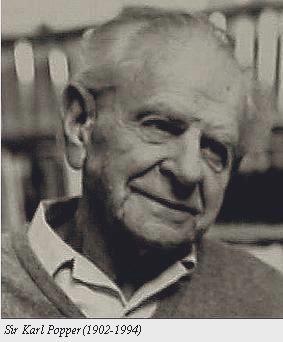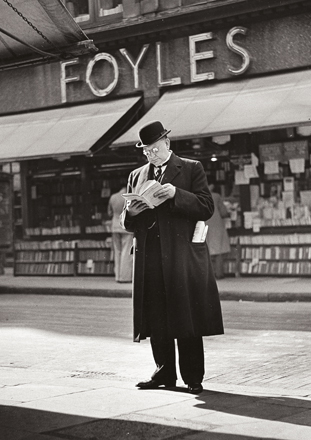Starting from when to wake up from the bed we start making decisions like which shirt to wear , which train to take, whom to talk to, when to respond to an email, whom to take for lunch etc etc.. we all take countless decisions everyday (strategic, operational , tactical, good , bad, opportunistic, benovalent etc) . They can be categorized easily into those that work very well (not taking an umbrella when weather forecaster says it would rain heavily) to decisions that screw up very bad (concluding that Iraq had weapons of Mass Destruction ) .
 Decisioning is really an art, which decides between life or death many a times. Though decisioning is well talked about and we are all aware of how critical it is to make a correct decision, many of us fail miserably many a times. To get this art into a science form there are lot of interesting experiments by Philosophers, I recently read one such experiments (“Conjectures and Refutations”) by the eminent philosopher Karl Popper. Those who are too lazy to check out who is popper from wikipedia, Popper is an Austrian philosopher who spent great deal of time in London school of economics (LSE)(1946-1969, subsequently knighted as well) and has influenced variety of philosophers and new age thinkers. He is not a guy with whom you will share a mild relation, people either like him to the core (Like legendary Investment banker George Soros) or other Classical empiricists who hate him to the core.
Decisioning is really an art, which decides between life or death many a times. Though decisioning is well talked about and we are all aware of how critical it is to make a correct decision, many of us fail miserably many a times. To get this art into a science form there are lot of interesting experiments by Philosophers, I recently read one such experiments (“Conjectures and Refutations”) by the eminent philosopher Karl Popper. Those who are too lazy to check out who is popper from wikipedia, Popper is an Austrian philosopher who spent great deal of time in London school of economics (LSE)(1946-1969, subsequently knighted as well) and has influenced variety of philosophers and new age thinkers. He is not a guy with whom you will share a mild relation, people either like him to the core (Like legendary Investment banker George Soros) or other Classical empiricists who hate him to the core. The book talks about scientific philosophy , origin of knowledge , decisioning etc and he covers them at great length at various different perspectives and sheds a great light on conventional wisdom. The part that intrigued me was that on the decisions we make, the way we form theories and their testability and falsibility. It started lot of questions and I started searching for the truth. (He has devoted an entire chapter on truth also), As we all know (in popper's words), truth is always relative and it is very hard to reach the absolute truth. When Galileo proposed his theory , it held good (after a great deal of reluctance from vatican) till newton arrived , newton's version of truth was better than Galileo's and kepler's and Einsteins was far better than newtons and so on. But individually their postulates helped to overcome and correct the assumptions that the society held till that point of time.
Leaving truth aside(it gets too philosophical and to us it is of no use),If we were to consider decisioning to be a black box , it has two main inputs , facts and assumptions (at a given situational context). The facts and assumptions are predominantly derived out the knowledge repository that we have gathered genetically as well as from our own experience. The knowledge that we gain is based on our observations and the inferences that we make out of them. He argues that unfortunately we don't do a critical evaluation of the inferences we make and we don't do it for the assumptions that we carry along as well. This could mean that we carry a sig
Popper's philosophical genre is what is being called as “critical rationalism” and he has done a remarkable work on it. Apart from treating it as a branch of philosophy , one could use his critical rationalism in variety of practical purposes , starting from psychology , economy to business intelligence etc. He mentions that this is a heritage of the greek philosophers that western civilization has accepted as a mainstream thinking which has resulted in numerous scientific discoveries (eastern society was close to invent a steam engine, they had a similar concept but used it to make rice-cakes) .
 Human mind is very good in making judgments based on the known facts , but doing a critical evaluation and being driven by the assumptions that are influenced by biases have cost huge amount of lives and money from both the good sides and bad sides.
Human mind is very good in making judgments based on the known facts , but doing a critical evaluation and being driven by the assumptions that are influenced by biases have cost huge amount of lives and money from both the good sides and bad sides. Anybody out there dying to make a bad decision?, evidently nobody would (Not sure about Bush, though) . Then, why do we keep taking bad decisions all the time? , Cant we all sit back , spend lot of thoughts and take right decisions all the time. Unfortunately that is not how it happens. We make decisions based on our prior knowledge with the time constraint a situation poses and tend to make lot of assumptions in the due course, if we are rational (a bit lucky as well) and have critically evaluated the assumptions that are the constituents of a decision making process , then it increases our probability of the decision being good, nothing else.
With an infinite permutations and combinations of events and possibilities of the occurrence of events which we are not even aware of ( only terrorists knew the flight could be made as a kamikaze bomber but not the police during 9/11) , the confidence level of a decision being successful increases . Please note this can never become an event with a probability of one (unless you decide on a fact like , today sun will appear in east and will set in the west, which is also debatable as we are making an assumption based on the observations on the laws of nature).
If decisioning seems to be such a hard stuff, why people tend to talk about it so less, unfortunately we all tend to think about things in the way we are taught to in the early part of our life and form rigid patterns of learning, we tend to develop our own convenient ways to deciphering and reacting to the challenges that a situation poses and this rigidity shuns our mind from adding more assumptions and a chance to evaluate them. But the philosophers starting from Xenophanes, Socrates and recent contemporary philosophers like Tarski, Russell, Popper etc have spent a great deal of energy and efforts into it and it is sad that this knowledge still remains elusive to a small circle.
It would be good if analytical reasoning and the views of several philosophers /scholars can be taught as a part of the curriculum for all of us as it would definitely make a better world, till that time lets keep making decisioning in our own ways and keep messing up to make the world a more interesting place. World would be a dull place to be filled by smarter people alone. Can you think of a super intelligent George Bush!
References :
Conjectures and Refutations by Sir Karl Popper
Black Swan by Nassim Nicholas Taleb
Plato.stanford.edu (Image reference)
And a bit of google and wiki.






